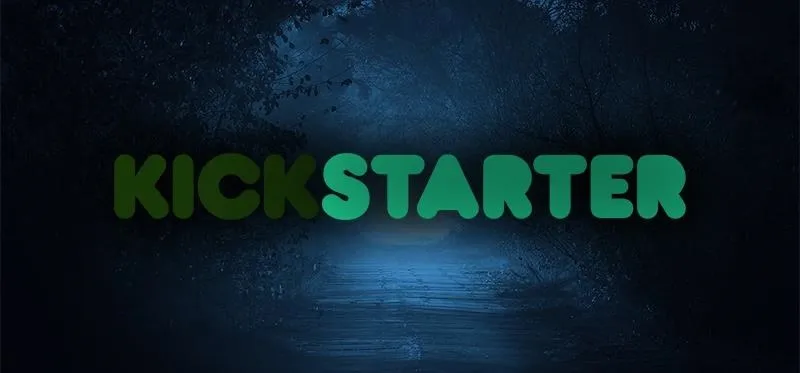"It just ticked me off," he said. In March 2011, Neil Singh paid $50 to back the Hanfree iPad stand on Kickstarter. The project was funded at $35,000, but production stalled, and the delivery estimates kept getting pushed back.
Eventually, the project's creator, Seth Quest, sent a final update saying the project had officially failed and that he would try to refund backers. The refunds never came, so ten months later Singh, an attorney from Arizona, filed a lawsuit citing breach of contract. The lawsuit bankrupted Quest and the fallout made it hard for him to get work, forcing him out of his career field of design. The physical and psychological toll of the bankruptcy led to chest pains and sleep loss.

Seth Quest

Neil Singh

Seth Quest

Neil Singh
The Dark Side of Kickstarter
Kickstarter ruins lives. Though the company helps connect people to finance their dreams, this noble attitude has driven some to squander away finances, lie, steal, and seek revenge. Kickstarter has a dark side.
Some projects are more of a scam than a failed business. In 2012, Erik Chevalier successfully raised $122,000 for his board game "The Doom That Came To Atlantic City," but never built it. Instead, he used the money to move to another state and pay his rent, but the Federal Trade Commission investigated; in 2015, Chevalier and the FTC reached a settlement to repay the money, but the fine was suspended because Chevalier was broke.
These stories abound. When Gadget Hacks reached out for comment, Kickstarter spokesman David Gallagher downplayed these issues, citing a University of Pennsylvania study showing that only 9 percent of projects fail to deliver rewards—but that means there's a 1 in 11 chance of backing a project that will fail. Not so small odds.
How & Why Does Any of This Happen?
In short, the uneasy pact between freedom and security. Kickstarter clearly states that it is a "platform," and not a "business." In that regard, it resembles the UPS or Gmail; it provides a means for people to connect with one another and nothing else. Don't shoot the messenger as they say.
Kickstarter does make use of an "Integrity team" to vet projects with certain requirements (e.g., verify the project's creator is a real person and, if they're making a physical item, prototypes are required), but other than that, it's really up to a project's backers to do the policing. The rules are intentionally lax because, as Gallagher noted in his email to Gadget Hacks, "A system that eliminated creative failure would be a system that produced little in the way of innovation."
Some do not take kindly to this stance. On July 9th, 2015, Joanie Lemercier wrote an open letter to CEO Yancey Strickler detailing Kickstarter's lack of quality control regarding a specific project, the Holus, a glass pyramid touted as a holographic movie and video game console.
Lemercier thought the presentation of the Holus was cheating itself to look better than it was by using 3D renderings in videos (which is against Kickstarter policy), among other things. Two days later, Strickler replied with a long letter in line with what Gallagher said: we do our best to screen, but the screen isn't a sieve, and further tightening cuts off innovation. Lemercier wasn't buying it, following up with a second blog-post titled "Kickstarter Is Broken."
The Cost of Investing
Kickstarter itself being broken is a heavy claim, but at least more than a few projects are. What can backers do to get a refund? The trouble here is that the investing in anything inherently carries the risk of failure; having your business fail is not a crime.
The FBI term for a scam like the ones on Kickstarter is an "advance fee scheme;" their site notes that an advance fee scheme may be legal unless it can be shown that the perpetrator never intended to follow through with their claims. Unless it can be shown that the creator never intended to put the funds that were raised back into the project, then tough luck—that's investing, baby. Kickstarter projects aren't immune from legal action, as noted above, and public policing is strong. But how strong should it be?

Penny Arcade's comic about Kickstarter scams.
The irony in the Hanfree iPad stand story is that the outcome clearly went against the principles of Kickstarter and the democratization of the internet. Quest was just a guy with no business acumen and a passion to get his first business out there. He tried, and like a lot of startups and first-time businesses, he failed. So what? That's the point of Kickstarter: here's a chance (and only a chance) to make your dream come true. Flux and failure are the internet's foundation that powerful products such as Reddit and Facebook originate from. Singh fundamentally missed this point, and ended up derailing someone's life because of it.
What's in It for Kickstarter?
As a platform, how liable is Kickstarter in protecting backers from bad projects and outright scams? There may be a precedent if it knowingly allows a questionable (but likely to be funded) project into the marketplace in order to take its cut—which is why Lemercier was so mad about the fake renderings and marketing fluff of the Holus. The company could be charged with being an accessory to fraud ("platform" services have been sued before for being shady). This possibility is the likely reason why Kickstarter doesn't use regular investing terms, opting instead for ones with no legal connections: backers, creators, projects, etc.
Kickstarter takes 8 to 10 percent from each successfully funded project, and presumably keeps that money even if a project is ousted as a scam; Gallagher didn't respond to this assertion. Which in itself is a little uncomfortable: the thought of Kickstarter vetting a project, knowing it is likely to fail but would be popular enough to get funded, and letting it through anyway in order to get their cut.
The University of Penn study shows the failure rate is 1 in 11, but that does mean that 91 percent of the time you'll fund something that works. Kickstarter tries to nicely say to backers "buyer beware." But with the coming of the FTC, internet heroes, and bitter backers with a vendetta to crush people like Quest, "seller beware" is just as applicable.
Kickstarter should hang a sign on its site that just says "Beware."
- Follow Gadget Hacks on Facebook, Twitter, Google+, and YouTube
- Follow Apple Hacks on Facebook and Twitter
- Follow Android Hacks on Facebook and Twitter
- Follow WonderHowTo on Facebook, Twitter, and Google+
Cover image via Shutterstock
























Comments
Be the first, drop a comment!